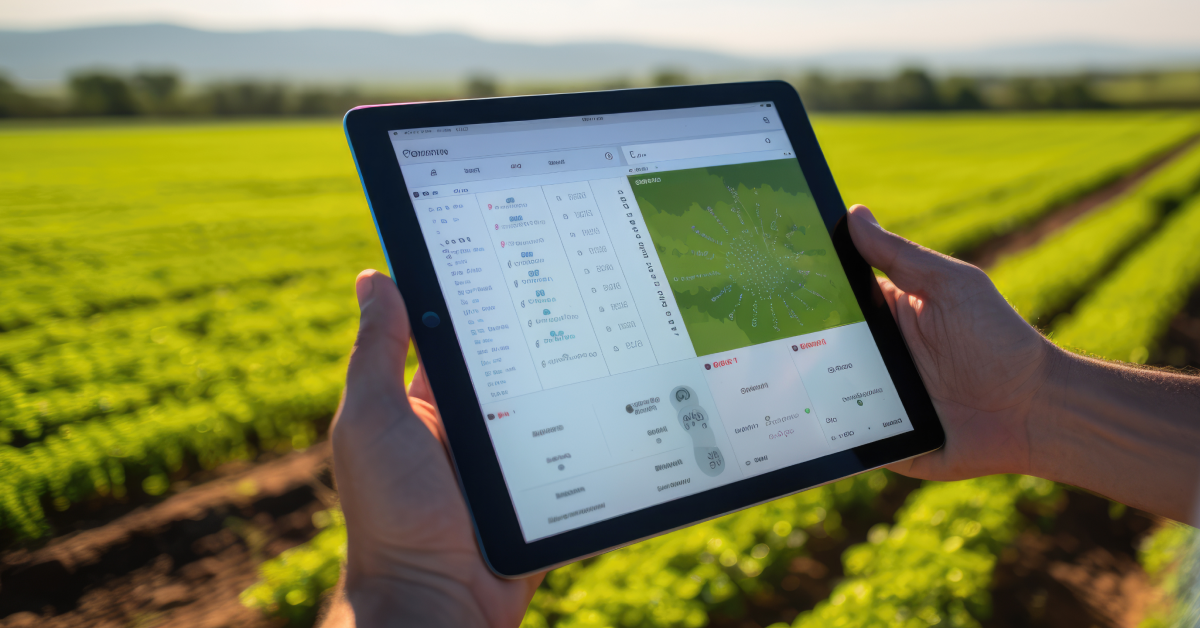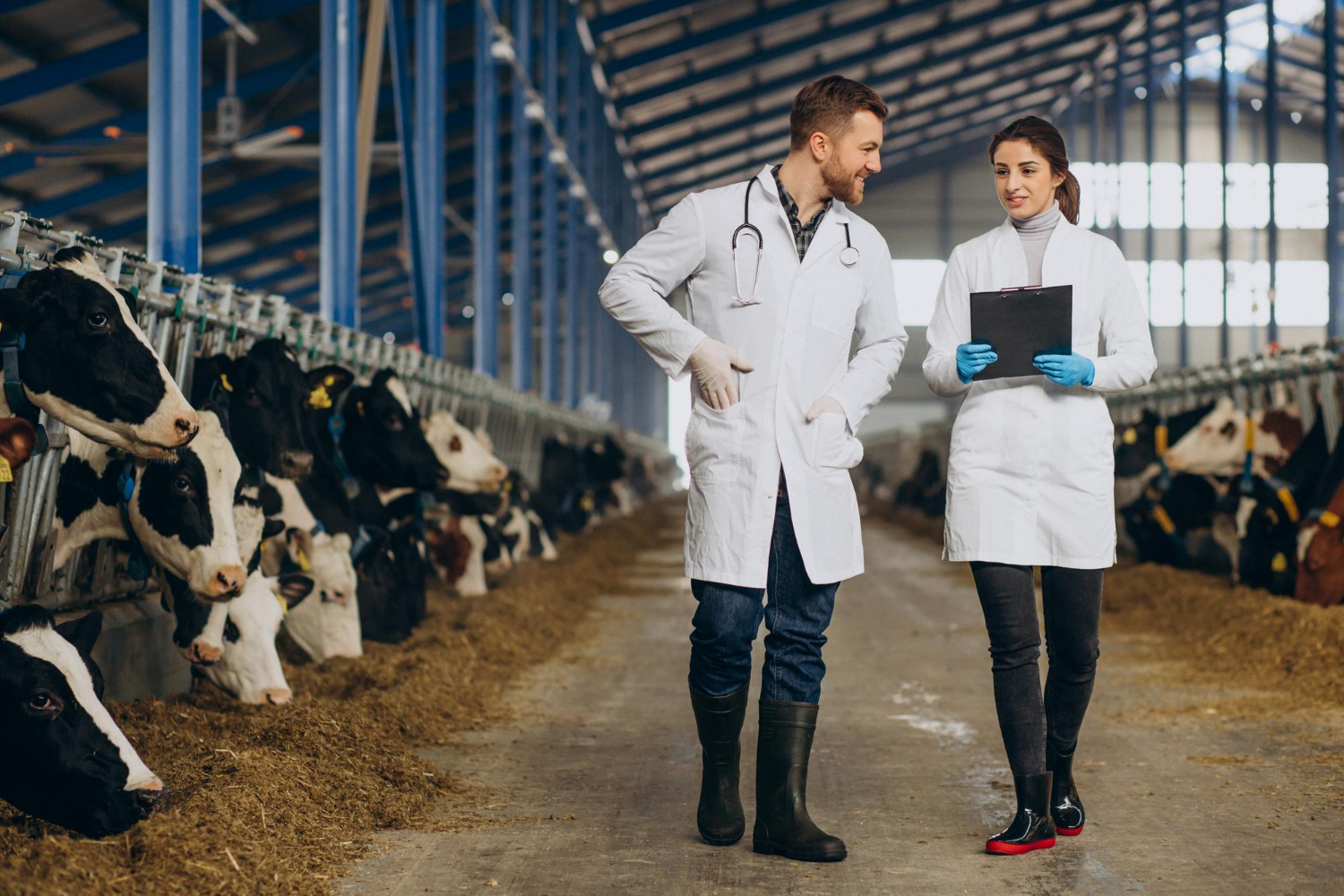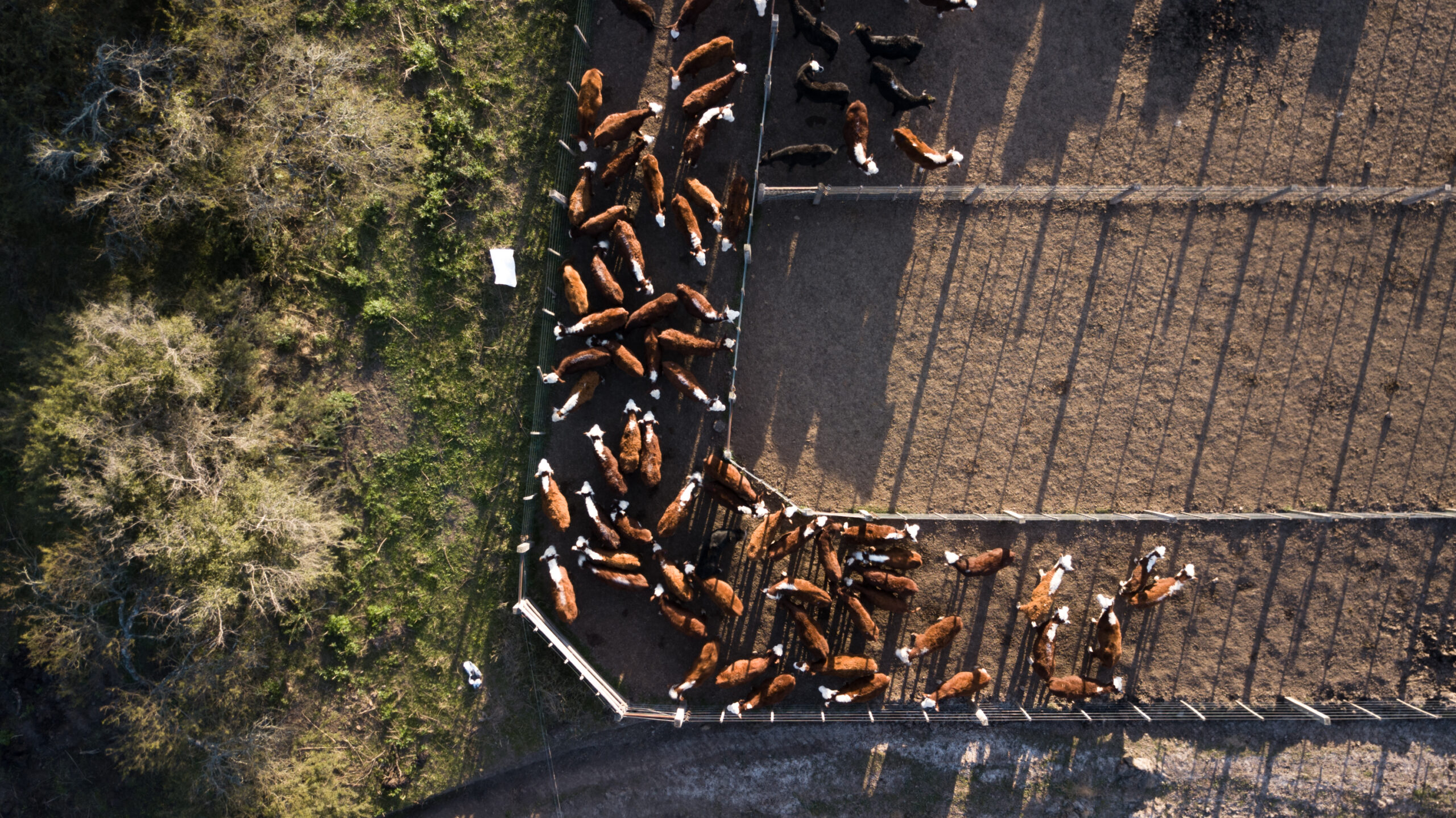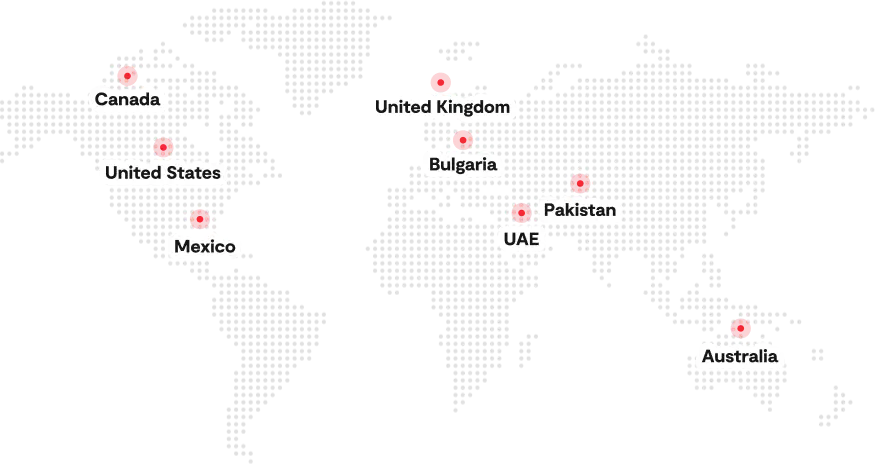One of the oldest and most essential agricultural practices is fertilization, which involves replenishing soil nutrients to enhance crop growth. Farmers who follow traditional techniques for applying fertilizers do so uniformly, regardless of fluctuations in the field’s conditions. However, this method, though still quite helpful to some extent, has other side effects. Nonetheless, intensive fertilizer use does not consider different crops’ diverse soil composition and requirements.
This usually results in inefficiencies, nitrates, and fertilizer runoff, and environmental degradation. Implementing a comprehensive crop management software solution can address these challenges by optimizing fertilizer application based on individual crop needs and soil conditions, reducing waste and environmental impact.
The quest for farming procedures that are both sustainable and efficient led to the concept of precision fertilization. Precise fertilization can be thought of as a brand-new farming approach. It involves accurately delivering fertilizer to crops where and when needed most.
At its core lies the 4R principle: right place, correct rate, at the right moment, and right quality. This path recognizes the complex linkages between soil, plants, and ecosystems, therefore seeking to maximize nutrient utilization and minimize loss and pollution.
Keep reading this blog to discover how precision fertilization revolutionizes modern agriculture, paving the way for sustainable and productive farming practices.
Benefits of Precision Fertilization
The multipurpose advantage of precision farming, both from the land productivity, environmental preservation, and profitability points of consideration, is that it minimizes nitrogen and phosphorus inputs and maximizes their yields.
Increased Crop Yields and Improved Crop Quality
The system will utilize the results of six sensor types, including soil moisture, air humidity, water level, conductivity, temperature, and light, to evaluate the fertilization formulation appropriate for the soil conditions and crops in question, thereby offering an advanced crop management software solution.
This approach ensures maximal nutrient intake by directing critical nutrients to the root zone at required rates and quantities, supporting continuous plant growth and development.
In this way, crops enjoy higher yield productivity and benefit from improved qualities, including increased size, color, and nutrient content.
Environmental Benefits
Reduced Fertilizer Runoff and Leaching
Using precision fertilization helps prevent water pollutants caused by minerals from washing off from the fields.
Offering the ability to apply nutrients precisely reduces pollution, of which nutrients running are the primary culprits. It ensures that healthy water ecosystems and high-quality water are directly engaged.
Decreased Greenhouse Gas Emissions
Innovation in nutrition uptake and precise fertilization at application lower gas emissions since nitrous oxide is released into the atmosphere. When paired with greenhouse management software, these innovations can be even more effective, allowing farmers to monitor nutrient levels and adjust fertilization schedules based on real-time data.
This reduces greenhouse gas emissions and allows for developing an environmentally friendly basis for sustainable agriculture.
Economic and Sustainability Benefits
Reduced Fertilizer Costs
To reduce the amount of fertilizers used, farmers can use precision fertilization to apply them refinedly only in areas of high need. Hence, it means a decrease in nitrogen fertilizer use and production and service inputs over time.
With the proper resource allocation, farmers can make impressive savings, although they might increase or maintain yields. Gel-based fertilizers, for example, deliver nutrients directly to the root zone, optimizing uptake and promoting consistent plant growth. Integrating gel fertilizers into precision farming enhances yields while reducing environmental impact and cost.
Promotion of Sustainable Agricultural Practices
Successful implementation of precision fertilization is a critical element of eco-oriented agriculture, which allows for a decrease in environmental load and resource savings.
The approach helps to avoid the deterioration of environmental conditions, both at the soil level and for general ecosystems, by minimizing nutrient wasting, conserving soil health, and cutting down environmental pollution.
This inclination is the foundation of modern ecological agriculture because it allows for consideration of present-day needs without draining future generations’ capabilities.
Methods and Technologies for Precision Fertilization
Fertilizing farming requires highly sophisticated approaches and technologies, revolutionizing how agronomists regulate water and nutrients to get the best crop output.
Let’s explore some of these innovative approaches:
Precision Irrigation Systems
These systems are designed to deliver water and nutrition underneath the plant, ensuring indirect efficiency in resource use.
Combined with fertilization practice, precision irrigation helps farmers strictly adapt the nutrient application to different areas of the field, leading to optimal plant growth and minimizing water and nutrient wastage.
Crop Management Software Solutions
Crop management software solution contributes to soil fertilization, using advanced technologies and methods to ensure proper nutrient use. Farming software solutions, putting such tools and information at farmers’ fingertips, let them make intelligent decisions on fertilizer application, optimize the use of all resources, including energy and water, and increase crop yield.
One significant role crop management software solution play is data collection. These platforms allow farmers to collect data in different ways, including soil tests, metadata reports, and sensory crops.
Farmers obtain such data by aggregating and analyzing it. Thus, they gain information concerning soil health, nutrient levels, and crop growth patterns that form the basis of their informed decisions.
Crop management software solution also helps to develop comparisons indicating fertilizer engagement. This data results in the platforms providing fertilizer timing, rate, and placement recommendations, precisely what needs to be done.
Growers can target fertilizer applications based on the needs of different crops and soil types. They can then maximize nutrient uptake, thereby reducing waste and minimizing the negative impacts on the environment.
Also, farmers can track field health everywhere in real-time. Using tools like remote sensing and satellite imaging, farmers will be able to detect early on when the plants are experiencing a nutrient shortage, pest infestation, or disease outbreak.
This anticipatory awareness enables the farmer to intervene in a timely manner, preventing crop losses and boosting crop productivity. Additionally, crop management software solution simplifies farms’ management processes by centralizing data and creating user-friendly interfaces.
Farmers no longer need to search for resources from different sources. They can easily access all relevant information in one place and track their fertilizer applications, crop rotations, and field operations.
This smooth process saves a manager’s time and reduces the possibility of mistakes, consequently improving the production process’s effectiveness.
Data Collection Methods
Soil Testing
Evaluation techniques of soil quality characterized by sample taking and analysis benefit planet business people because they show nutrient deficits and unevenness in a field.
Farmers who understand soil nutrient levels assist in applying fertilizer to each area according to the specific needs of the crops while improving nutrient intake by crops.
Crop Sensors
Crop sensors measure crop health and nutrient needs, amongst other parameters, using chlorophyll content and canopy temperature.
This data gives growers precise information about crop state, which empowers farmers to adjust and optimize the ratio of yield and quality of harvested crops by varying the fertilizer doses accordingly.
Yield Mapping
Yield mapping technology pinpoints zones of high and low productivity within the whole field by collecting data on crop yields in every individual cell as soon as harvesting occurs.
Farmers could also discover the reasons for the productivity gap by mapping yielding anomalies, such as low soil fertility or drainage issues, and adjusting the fertilization regime.
Geographic Positioning Systems (GPS)
GPS is precisely the technology used for rightsizing field planning. Farmers can constrain their field boundaries and record their operations, such as tilling and planting.
Farmers could create detailed maps specifically for variable rates and targeted fertilization by applying GPS data in combination with other agronomic maps.
Variable Rate Application (VRA):
Through VRA technology, the fertilizer application rates are controlled based on data collected from soil tests, crop sensors, yield maps, and the GPS mapping system.
The benefit of variable rate application (VRA) is that farmers can set different fertilizer rates in other parts of the field. This means fertilizer can be supplied precisely according to crop demand, improving fertilizer use efficiency.
VRA tools, including Spreader Booms and Tractor-mounted applicators, help distribute fertilizers precisely, increasing the amount in areas that need them and decreasing the amount in those that need less.
This leads to the targeted application only in areas with low nutrient levels, thus ensuring a sufficiently nutritious supply elsewhere. This is valuable in optimizing crop yields and minimizing the environmental impact.
Challenges and Considerations for Implementation
As with any new technology, crop management software solution, or approach, the implementation of precision fertilization comes with its own set of challenges and considerations that farmers must navigate:
Initial Investment Costs
One significant issue for farmers undertaking precision fertilization is the high costs involved in collecting data and technological equipment.
For instance, high-tech precision agriculture tools composed of soil probes, crop trackers, positioning systems, and crop management software solutions may be costly and require severe budgetary allocations.
Furthermore, specific necessities might be needed to introduce these technologies to old-fashioned farming, even though the returns of investments in agricultural machinery and technologies may be substantial from a long-term perspective in terms of higher productivity and resource efficiency.
They can constitute a significant financial barrier for some farmers, especially those who lack the opportunity to raise the required capital.
Need for Farmer Training
One more important aspect of equipping farmers with precision farming tools and crop management software solutions like EcoDocs is helping them understand machinery and data.
Although these technologies provide a helpful lens and decision support for farmers, the human factor remains in their ability to utilize them effectively.
Training programs on precision agriculture principles, establishment analysis techniques, and technology operations equip farmers to fully understand the potential of precision fertilization.
Furthermore, maintenance and education would be emphasized to keep abreast of emerging technologies and advanced precision agriculture methods.
Data Security and Privacy Concerns
The development of precision fertilizer, including crop management software solutions, requires infrastructures dealing with big data, which involves collecting and governing sample data on soil features, plant health, and the entire farming process.
Although this data is necessarily accurate for better nutrient management and decisions, it does create intrusiveness like data security and privacy.
Farmers need robust measures to protect farm privacy from people who access farm data without permission, hack the system, or misuse gathered information.
This will involve using strong encryptions for data, giving access to authorized people, and following privacy regulations and auditing practices.
The Future of Precision Fertilization
Precision fertilization will undergo a revolutionary metamorphosis shortly, capturing the fruits of sensor technology, AI integration, and the cultivation of site-specific fertilizers highly customized for every field’s crop and soil conditions.
Advancements in Sensor Technology
The future of precise fertilization will include numerous advanced sensors that can monitor live soils, plant health, and environmental variables in real-time.
These sensors require farmers to obtain specific data on nutrient levels, moisture content, and bug pressures. As the prolonged relationship between farmers and low-cost, high-precision sensors evolves, this data contributes to accurate fertilizer application decisions.
It enables the agriculture sector to obtain more information that will refine nutrient management and drive precision in resource usage.
Integration with Artificial Intelligence (AI)
The application of AI is expected to revolutionize precision fertilization through automated decision-making technologies that go beyond the limitations of the data being handled.
The machine learning algorithms may process data from sensors, satellite imagery, and records to create details tailored to each condition of a specific area.
Using data analytics, AI-based stakeholders can scale up farming to achieve higher crop yields using less input, minimizing waste, and conserving both cost and the environment.
Development of Site-Specific Fertilizers
At the same time, specific fertilization will be highly diversified, creating calendar-specific pesticides coupled with crop- and soil-specific fertilizers.
These fertilizers will be personalized based on the nutrients the analysis indicates are needed and the ratio per species of plants that deserve different nutrients.
Through the site-specific approach, fertilizers can deliver nutrients precisely to where crops will most absorb them, reducing nutrient waste and environmental pollution and minimizing fertilizer use.
Conclusion
Through efficient fertilization practices, we can put agriculture on the right trajectory of growing enough food for the population while keeping an eye on the planet.
It cannot be stressed enough that it may be this only fact that can solve world food challenges ranging from growing population to lessening the effects of climate change on food.
Precision fertilization is a disruptive idea that can transform agribusiness by providing farmers with the tools and techniques to optimize nutrient management and maximize yields.
At the same time, minimize the impact on the environment. One impactful way to minimize environmental effects is to improve the precision in the usage of fertilizers depending on the needs of the crop and the exact conditions of the soil. Therefore, more farmers can have higher yields, protect their resources, and improve sustainability through advanced crop management software solution.
The approach to fertilization, with an eye foremost on precision, is emerging as one central keystone in our evolving, more resilient, and efficient agricultural system.
The alternative approach based on innovations allows farmers not only to fulfill the demand for food increase but also to keep the planet healthy for future generations.
Ultimately, precision fertilization is a guiding light in the whirlwind of the future of agriculture, driven by the desire for transformation into a more environmentally friendly world.





